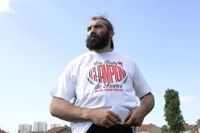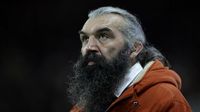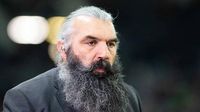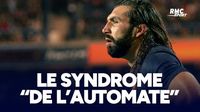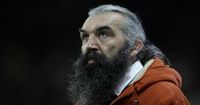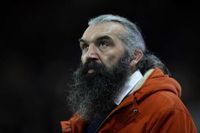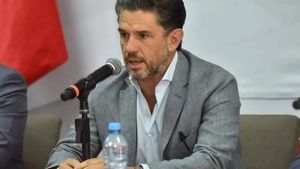Sébastien Chabal, the former French rugby star known for his powerful presence on the field, has revealed a shocking reality about his post-career life: he suffers from severe memory loss likely caused by the concussions he endured during his 16-year professional career. In an emotional interview on the YouTube podcast "Legend" hosted by Guillaume Pley, released on April 9, 2025, Chabal shared that he has no recollection of any of the matches he played, including the 62 times he represented France in international competitions.
"I don’t remember a single second of any rugby match I played," Chabal stated, his voice heavy with the weight of his admission. The 47-year-old former player, who was a prominent figure in rugby from 1998 to 2014, expressed his disbelief at the extent of his memory loss. He even disclosed that he cannot recall any of the 62 Marseillaises he experienced throughout his career.
Chabal attributed his amnesia to the physical toll that rugby took on his body, particularly the repeated blows to the head. "We took some hits to the head, and the damage has been done," he explained, reflecting on the harsh realities of a sport known for its physicality. He emphasized that he feels detached from his past, stating, "It feels like it wasn't me who played rugby." This sentiment highlights the deep psychological impact of his condition, as he struggles to connect with the memories of a career that defined a significant portion of his life.
Despite the alarming nature of his situation, Chabal has not sought medical help, believing that consulting a neurologist would not restore his lost memories. "What would be the point? The memory won’t come back anyway," he remarked, showcasing a resigned acceptance of his condition.
Chabal's revelations come at a time when awareness of sports-related concussions is growing, particularly in rugby, where players are increasingly speaking out about the long-term effects of head injuries. In the UK, several former rugby players, including Alix Popham and Steve Thompson, have initiated legal proceedings against World Rugby and the governing bodies of English and Welsh rugby, citing early-onset dementia linked to their playing days. Both Popham and Thompson have bravely shared their struggles, bringing further attention to the issue of player safety and health in contact sports.
Chabal's candidness about his memory loss adds another layer to the ongoing conversation about the consequences of concussions in rugby. He acknowledged that many former players are taking collective action due to the impacts of head trauma, stating, "There are many actions being taken by former players because we took some hits to the head." This acknowledgment is crucial as it emphasizes the need for better protections and protocols for current and future players.
Reflecting on his career, Chabal expressed a mixture of pride and frustration. He is often remembered for his aggressive playing style and his iconic beard, which earned him the nickname "Caveman" among fans and opponents alike. However, he also faced criticism during his career, with detractors questioning his stamina and effort on the field. "In France, they said I didn’t run enough, didn’t put in enough effort, and wasn’t enduring enough. It was horrible," he recalled, revealing how those comments still resonate with him today.
Chabal also lamented the loss of significant personal memories, including the birth of his daughter two decades ago. "I have forgotten most of the important moments in my life," he admitted, highlighting the profound impact of his condition not just on his professional life but on his personal relationships as well.
As a consultant for Canal+, Chabal remains connected to the sport he loves, yet his experiences serve as a stark reminder of the hidden dangers athletes face. His story underscores the urgent need for ongoing research into the long-term effects of concussions in rugby and other contact sports.
In a world where the physicality of sports can overshadow player welfare, Chabal's revelations are a call to action for both governing bodies and fans alike. The rugby community must prioritize player health and safety, ensuring that future generations do not have to face the same struggles as those who came before them.
As the conversation around concussions continues to evolve, Chabal's voice adds significant weight to the discussion. His courage to share such personal struggles sheds light on a critical issue that extends beyond the rugby field, affecting countless athletes across various sports.
